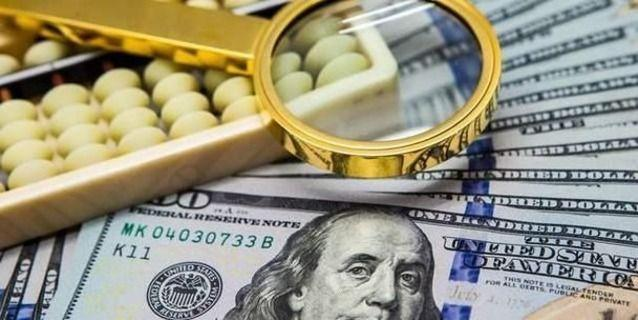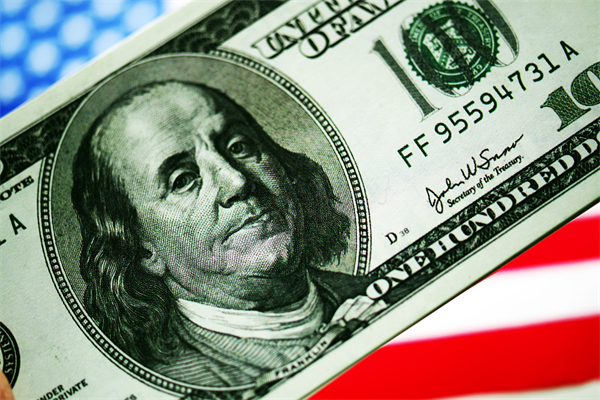
Local time on November 1, the Federal Reserve announced after the end of the monetary policy meeting, maintain the current 5.25% to 5.50% federal funds rate target range unchanged, in line with market expectations. This is the first time since the Fed began the current tightening cycle in March last year that it has not raised interest rates in two consecutive meetings. This shows that the Federal Reserve in the fight against inflation in the process of wait-and-see stance, but also reflects that the Federal Reserve has repeatedly indicated a hawkish stance, but due to the rise of financial risks, continue to implement tightening policies have insufficient momentum.
Since June, while US consumer spending and employment have increased, inflation has slowed markedly. Fed Chairman Jerome Powell said the recent drop in inflation figures to below 4% was a very strong development. But he also stressed that there is a long way to go to bring inflation down to 2 percent. The US Labour market and economic growth are still strong and the full impact of monetary policy has not yet been felt, so it cannot be rushed, "slowing down will give us a better idea of how much more needs to be done".

Unlike the "hawkish pause" at the September interest rate meeting, the Fed issued a "dovish signal" at this meeting. Powell said the Fed has made a lot of progress in this rate hike cycle and is nearing the end of the cycle. Given the uncertainties and risks and the progress that monetary policy has made, the Federal Reserve will proceed cautiously at future meetings in deciding how much further to tighten policy based on incoming data and their implications for the economic outlook, economic activity and inflation, and the balance of risks. Some analysts believe that this is a "dovish" statement, and the Fed may continue to "stay on hold" in December.
The Fed's "dovish" turn at this point has more to do with financial stability than with controlling inflation. Market optimism increased after the announcement. All three major U.S. stock indexes closed higher, with the Nasdaq up 1.64 percent, the Dow and the S&P 500 up 0.67 percent and 1.05 percent, respectively. The 2-year yield continued to dip to 4.95 percent. The dollar index briefly approached 107 to close at 106.475. This is certainly a good thing for the recent turmoil in US financial markets.
In addition to credit problems, the statement for the first time added "tightening financial conditions" to factors affecting economic activity. This suggests that the tightening of financial conditions caused by the recent rise in Treasury yields is slipping out of the Fed's "grasp". In the past, the Fed had the power to raise or lower interest rates on U.S. debt, and investors bet on the interest rate of U.S. debt at the Fed's whim. However, recently, in the background of the Fed's interest rate hike expectations have weakened, long-term US bond yields have risen instead of falling, and the US 10-year Treasury bond yield recently rose above 5%, reaching the highest level since 2007. Morgan Stanley estimates that the jump in Treasury rates is equivalent to a 75 basis point increase for the Fed. This also caused the Federal Reserve to continue to suspend interest rate hikes.
The main reason for the surge in Treasury yields is the significant oversupply of Treasury bonds. As of September 18, the federal debt exceeded $33 trillion, according to the U.S. Treasury Department. For the fiscal year 2023, which ends Sept. 30, the federal government has a deficit of nearly $1.7 trillion, up 23 percent from the previous fiscal year. The U.S. government ran high budget deficits during an economic expansion. At the same time, the Fed's gradual reduction of its Treasury holdings and balance sheet has further increased the supply of Treasuries. Against the backdrop of high US bond yields and a rebound in US economic data, the market is concerned that the Federal Reserve may adopt a prolonged tightening stance, weighing on US borrowing costs and the economic outlook, including greater pressure on the US Treasury to pay interest. Some analysts said that in the next 12 months, about $7.6 trillion of low-interest debt will mature, and the United States gold reserves are limited, when the amount of new debt issued to replace the old debt who will take over, and how to fill the huge interest expenses will become an urgent problem for the United States Treasury.

How long the Fed can keep interest rates high depends on the performance of the US economy. New data showing that the US economy grew at an annualised rate of 4.9% in the third quarter, much faster than expected, came on a day when US stock markets were underwhelmed. The public is not buying Bidenomics either. According to the statistics of the United States Gallup consulting company, the public's support for the economic policies of the Biden administration was only 37% in August, and even fell below the lowest level during the Trump administration. Some analysts believe that this is mainly because the actual economic sense and strong consumption data do not match, the Federal Reserve's aggressive interest rate hike led to soaring mortgage and car loan interest rates, and rising prices greatly reduced people's satisfaction with life.
From the perspective of expectations, the market still has doubts about the economic situation in the United States in the fourth quarter and next year. In particular, at present, the US securities market and the leverage ratio of government departments are at a historically high level. In the case of the Federal Reserve continuing to raise interest rates, the high interest rate is easy to cause financial risks, and the financial risks faced by the United States will rise and may spill over to the outside world, in turn affecting the US economy.

Driven by the Trump administration's push to relax financial regulations and the recovery of investment banking business, the market value of the six major banks in the United States has cumulatively increased by approximately 600 billion US dollars by 2025.
Driven by the Trump administration's push to relax financia…
On Christmas evening, U.S. President Trump posted on social…
According to multiple foreign media reports, the recent fin…
The middle class, once regarded as the cornerstone of Ameri…
On December 19th local time, the US military launched a lar…
The Boxing Day sunshine should have cast a false glow of pr…